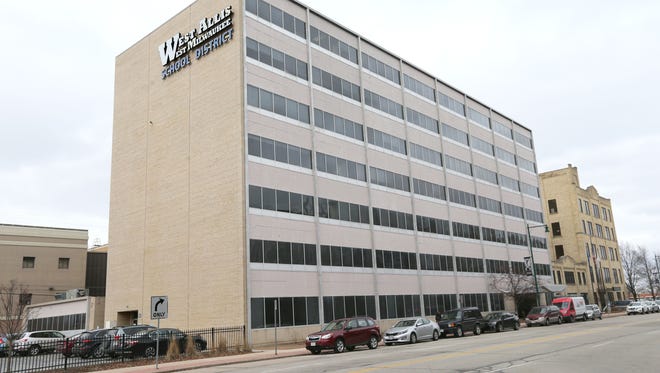State OKs $15.8 million in loans for West Allis-West Milwaukee schools after referendum fails
 Annysa Johnson
Annysa JohnsonFour months after rejecting a $12.5 million increase in spending for operations, residents in the West Allis-West Milwaukee School District will see their taxes rise anyway after the district's requests for $15.8 million in state loans were approved Wednesday.

The state's three-member Board of Commissioners of Public Lands voted 2-1 to approve the loans: $12.8 million to pay for energy efficiency improvements and an additional $3 million for capital projects.
The loans will nearly double the debt of the suburban Milwaukee County district, which has been struggling to regain its financial footing after blowing through $17.5 million in reserves in recent years before posting a $2.1 million deficit in 2016.
RELATED:West Allis school district turns to taxpayers after blowing through $17.5 million in reserves
Andy Chromy, director of finance and operations for the district, defended the School Board's decision to seek the loans after residents rejected extra spending in a referendum.
"We have 17 schools that are at least 46 years old and we are not able to replace all of them," Chromy said. "So, this is an avenue to help us at least try to keep the schools we have in the best condition we can."
State Treasurer Matt Adamczyk, who sits on the state panel, was the lone dissenter. Adamczyk, a Republican, opposes the state law that allows districts to borrow for energy efficiency improvements — effectively raising residents' taxes — without seeking voters' approval in a referendum. He said the request amounts to an end run around West Allis-West Milwaukee taxpayers.

"The people who voted (in the April referendum) said no," Adamczyk said. "And then we end up deciding that taxpayers will pay more in West Allis."
The other commissioners, Attorney General Brad Schimel and Secretary of State Douglas La Follette, voted to approve the loans, saying the district's request met the criteria.
"It's not our role to second-guess the local community as long as they’ve met the criteria," La Follette said.
Tracy Stefanski of West Allis, who spearheaded a failed petition drive aimed at forcing the district take the $12.8 million energy efficiency loan to a referendum, said he was disappointed by the vote.
"It's terrible how the West Allis-West Milwaukee School District is thumbing their noses at the taxpayers," Stefanski said. He said his group raised 708 of the 5,000 signatures needed to put the question on the ballot; the district said it received only 10 signatures.
The $3 million loan will have no additional impact on taxpayers because it falls within the district's revenue limits. The energy efficiency loan will boost taxes, but less than the $12.5 million spending proposed in the operating referendum would have.
With the new loan, taxes will rise $16 a year in the first year and $6 in each of the remaining eight years of the loan for every $100,000 of home value, compared with $58 a year under the referendum proposal, according to Chromy.
West Allis-West Milwaukee is among a number of districts trying to secure loans for energy projects before Gov. Scott Walker signs the 2017-'19 biennial budget, which is expected to temporarily suspend the law or eliminate it altogether.
Since it was enacted in 2009, the law has allowed more than 160 districts to raise at least $217 million in revenue for energy projects — and to pass those costs on to taxpayers without first seeking approval through a referendum.
These are generally big-ticket projects, and districts usually turn to the bond markets to finance them. But a few have come before the Board of Commissioners of Public Lands, which administers a $1 billion trust fund that benefits schools, libraries and municipalities.
RELATED:Wisconsin schools raised $217M above tax caps for green projects
West Allis-West Milwaukee turned to the state because it was advised by its financial advisers not to seek funding through the bond market, according to Chromy. The district's financial problems lowered its credit rating to BA1, which means any bonds it secured would be considered a significant investment risk.
A risky rating also pushes up the cost of borrowing, which would be higher than the 3.5% interest rate offered by the state.
Chromy said the district is now operating with a surplus, but he declined to say how much until he receives the final audit. But Chromy said in a memo to the School Board in July that he expects the district's reserves to hit $16.2 million by the end of 2017-'18 school year. That would be within two years of its goal of $20 million, he said.